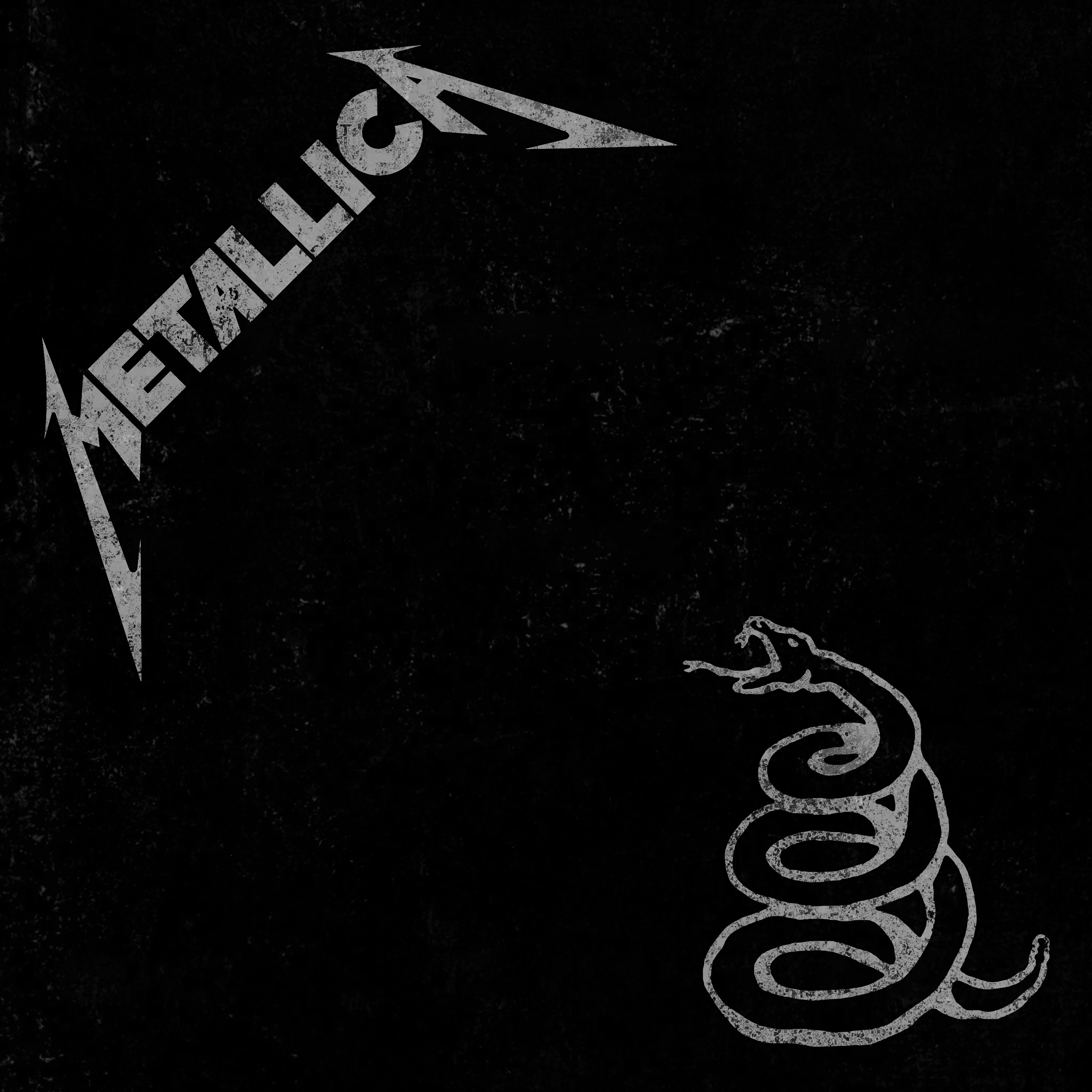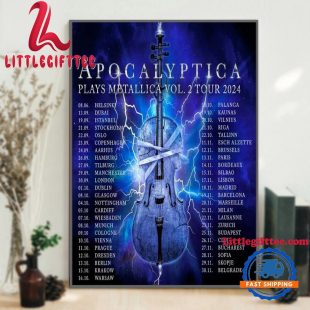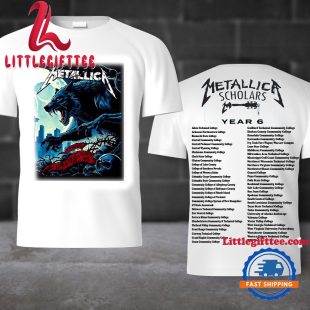Music
The Definitive Guide to Metallica’s Best Songs
When it comes to heavy metal, the name Metallica instantly conjures up images of thunderous riffs, captivating melodies, and lyrics that delve deep into the human experience. As one of the most influential and iconic bands in the genre, Metallica has built a legacy that has transcended mere music, becoming a cultural phenomenon that has resonated with fans worldwide.
Metallica’s Enduring Masterpieces

Metallica’s discography is a treasure trove of timeless classics, each possessing a unique blend of power, emotion, and artistry. From the relentless aggression of “Master of Puppets” to the introspective melancholy of “Fade to Black,” the band’s ability to craft songs that leave a lasting impression on listeners is truly remarkable.
One – The Haunting Anthem of War

“One” stands as a towering achievement in Metallica’s repertoire, a testament to the band’s ability to create music that is both sonically powerful and emotionally profound. The song’s opening salvo of thunderous drums and ominous guitar riffs immediately grabs the listener’s attention, setting the stage for a lyrical journey that delves into the harrowing experiences of a soldier trapped in the throes of war.
The lyrics, inspired by the novel “Johnny Got His Gun” by Dalton Trumbo, paint a vivid and haunting picture of a soldier who has lost all his senses and is trapped in a state of living death. The use of subtle, yet evocative, imagery coupled with the song’s dynamic musical progression creates a sense of claustrophobic despair that is both unsettling and captivating.
The song’s climactic moment, where the distorted guitars and pounding rhythms give way to a soaring, emotive solo, is a testament to Metallica’s ability to craft a musical journey that is both technically impressive and emotionally resonant. The combination of James Hetfield’s anguished vocals, the intricate guitar work, and the sense of impending doom that permeates the track makes “One” a true masterpiece of heavy metal storytelling.
Master of Puppets – The Symphonic Embodiment of Addiction

“Master of Puppets,” the title track from Metallica’s landmark 1986 album, is a towering achievement in the annals of heavy metal. Clocking in at over eight minutes, the song is a sprawling, multi-part epic that showcases the band’s virtuosic musicianship and their ability to weave intricate, thematic narratives into their music.
The song’s opening riff, a menacing and relentless pulse, sets the tone for the journey to come. As the song progresses, it takes the listener on a rollercoaster ride of emotions, from the crushing weight of the verse sections to the soaring, melodic choruses. The song’s structure, with its sudden tempo changes and dynamic shifts, creates a sense of unpredictability and tension that keeps the listener on the edge of their seat.
Lyrically, “Master of Puppets” explores the theme of addiction and the ways in which it can consume and control an individual. The metaphor of the “master of puppets” pulling the strings of the protagonist’s life is a powerful one, and the band’s ability to convey this sense of helplessness and desperation through their music is truly remarkable.
The song’s climactic solo section, featuring an intricate and emotive guitar work, is a true highlight of the track. The way in which the solo builds in intensity and complexity, mirroring the emotional journey of the lyrics, is a testament to Metallica’s masterful songwriting and musical craftsmanship.
Fade to Black – The Poignant Exploration of Darkness
“Fade to Black,” from Metallica’s 1984 album “Ride the Lightning,” is a powerful and introspective exploration of the human experience of depression and suicidal ideation. The song’s opening acoustic guitar riff, a hauntingly beautiful and melancholic melody, sets the tone for the journey to come.
As the song progresses, the listener is drawn into a world of emotional turmoil, as the lyrics paint a vivid picture of a protagonist struggling with the weight of their own existence. The use of vivid and evocative imagery, such as “the curtains of night,” and “the final curtain,” creates a sense of impending doom and despair that is both poignant and deeply affecting.
The song’s musical structure, with its dynamic shifts from the delicate acoustic opening to the crashing crescendo of the electric guitars, mirrors the emotional journey of the lyrics. The way in which the band builds tension and release throughout the track, culminating in the soaring, emotive solo, is a testament to their ability to craft music that resonates on a deeply emotional level.
What makes “Fade to Black” so compelling is the way in which it taps into the universal human experience of struggle and despair. The song’s ability to convey the overwhelming sense of isolation and hopelessness that can come with depression is a testament to Metallica’s skill as storytellers and their willingness to tackle difficult and emotionally-charged subject matter.
The Metallica Effect: Capturing the Essence of the Human Experience

Metallica’s enduring popularity and acclaim can be attributed to their ability to craft songs that resonate on a deep, emotional level with their listeners. Whether it’s the gut-wrenching intensity of “One,” the symphonic grandeur of “Master of Puppets,” or the introspective melancholy of “Fade to Black,” the band’s music has a way of tapping into the universal human experience, speaking to the struggles, triumphs, and complexities of the human condition.
Creeping Death – The Relentless March of Mortality
“Creeping Death,” from Metallica’s 1984 album “Ride the Lightning,” is a prime example of the band’s ability to craft a song that is both technically impressive and emotionally resonant. The song’s opening riff, a relentless, pounding rhythm that evokes the image of a unstoppable force, sets the tone for the journey to come.
As the song progresses, the listener is drawn into a world of biblical imagery and the raw power of nature. The lyrics, which tell the story of the tenth plague of Egypt, where the first-born sons were struck down, create a sense of dread and foreboding that is palpable.
The song’s musical structure, with its sudden tempo changes and bursts of energy, mirrors the sense of chaos and destruction that is central to the lyrical narrative. The way in which the band weaves together the intricate guitar work, the pummeling rhythm section, and James Hetfield’s guttural, venomous vocals creates a sense of unbridled power and intensity that is truly captivating.
What makes “Creeping Death” so compelling is the way in which it taps into the universal fear of mortality and the relentless march of time. The song’s ability to convey the overwhelming sense of helplessness and despair in the face of such a monumental force is a testament to Metallica’s skill as storytellers and their willingness to tackle difficult and emotionally-charged subject matter.
Battery – The Sonic Embodiment of Rage
“Battery,” from Metallica’s 1986 album “Master of Puppets,” is a blistering testament to the band’s ability to craft a song that is both technically complex and emotionally charged. The song’s opening riff, a frenzied and relentless barrage of guitar notes, sets the tone for the journey to come.
As the song progresses, the listener is swept up in a whirlwind of energy and aggression, as the band unleashes a torrent of riffs, solos, and thunderous rhythms. The lyrics, which explore the theme of personal empowerment and the need to overcome adversity, create a sense of urgency and intensity that is palpable.
The song’s musical structure, with its sudden tempo changes and bursts of energy, mirrors the emotional journey of the lyrics. The way in which the band weaves together the intricate guitar work, the pummeling rhythm section, and James Hetfield’s impassioned vocals creates a sense of raw, unbridled power that is truly captivating.
What makes “Battery” so compelling is the way in which it taps into the universal experience of rage and the need to channel that energy into positive change. The song’s ability to convey the overwhelming sense of power and determination in the face of adversity is a testament to Metallica’s skill as storytellers and their willingness to tackle difficult and emotionally-charged subject matter.
The Cultural Impact of Metallica’s Music

Metallica’s music has not only captivated audiences with its technical brilliance and emotional resonance, but it has also had a profound impact on the cultural landscape of heavy metal and beyond. The band’s ability to push the boundaries of the genre, while still maintaining a strong connection to their roots, has earned them a place in the pantheon of rock and roll legends.
The Four Horsemen – Metallica’s Apocalyptic Anthem
“The Four Horsemen,” from Metallica’s 1983 debut album “Kill ‘Em All,” is a prime example of the band’s ability to craft a song that is both technically impressive and culturally significant. The song’s opening riff, a thunderous and relentless barrage of power chords, sets the tone for the journey to come.
As the song progresses, the listener is swept up in a whirlwind of energy and aggression, as the band unleashes a torrent of riffs, solos, and thunderous rhythms. The lyrics, which explore the theme of the four horsemen of the apocalypse, create a sense of foreboding and dread that is palpable.
The song’s musical structure, with its sudden tempo changes and bursts of energy, mirrors the emotional journey of the lyrics. The way in which the band weaves together the intricate guitar work, the pummeling rhythm section, and James Hetfield’s guttural, venomous vocals creates a sense of raw, unbridled power that is truly captivating.
What makes “The Four Horsemen” so compelling is the way in which it taps into the universal fear of the end of the world and the need to confront the darkness that lies within us all. The song’s ability to convey the overwhelming sense of doom and destruction in the face of such a monumental force is a testament to Metallica’s skill as storytellers and their willingness to tackle difficult and emotionally-charged subject matter.
Harvester of Sorrow – Metallica’s Descent into Darkness
“Harvester of Sorrow,” from Metallica’s 1988 album “…And Justice for All,” is a powerful and introspective exploration of the darker aspects of the human experience. The song’s opening riff, a sinister and haunting melody, sets the tone for the journey to come.
As the song progresses, the listener is drawn into a world of emotional turmoil and despair, as the lyrics paint a vivid picture of a protagonist struggling with the weight of their own existence. The use of vivid and evocative imagery, such as “the harvester of sorrow” and “the endless river of pain,” creates a sense of impending doom and hopelessness that is both poignant and deeply affecting.
The song’s musical structure, with its dynamic shifts from the brooding verses to the crushing chorus, mirrors the emotional journey of the lyrics. The way in which the band builds tension and release throughout the track, culminating in the soaring, emotive solo, is a testament to their ability to craft music that resonates on a deeply emotional level.
What makes “Harvester of Sorrow” so compelling is the way in which it taps into the universal human experience of suffering and the need to confront the darkness that lies within us all. The song’s ability to convey the overwhelming sense of isolation and despair in the face of such a monumental force is a testament to Metallica’s skill as storytellers and their willingness to tackle difficult and emotionally-charged subject matter.
Metallica’s enduring legacy as one of the greatest heavy metal bands of all time is a testament to their ability to craft music that resonates on a profound and lasting level. From the gut-wrenching intensity of “One” to the introspective melancholy of “Fade to Black,” the band’s discography is a treasure trove of timeless classics that continue to captivate and inspire listeners around the world.
Through their music, Metallica has not only pushed the boundaries of the heavy metal genre, but they have also tapped into the universal human experience, tackling themes of war, addiction, depression, and the relentless march of mortality. In doing so, they have cemented their place as one of the most influential and iconic bands in the history of rock and roll, a legacy that continues to inspire and captivate new generations of fans.
As we delve deeper into the rich tapestry of Metallica’s music, it becomes clear that their enduring appeal is not simply a matter of technical prowess or commercial success, but rather a testament to their ability to create art that speaks to the very core of the human experience. Whether you are a lifelong fan or a newcomer to the world of heavy metal, Metallica’s music is sure to leave a lasting impression, a powerful reminder of the transformative power of music and the enduring spirit of the human condition.




















